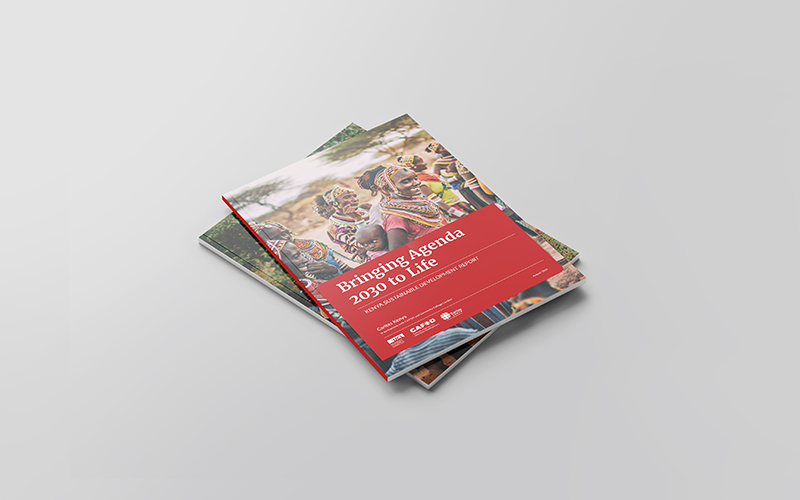Bringing Agenda 2030 to life

15 January 2020
Bringing Agenda 2030 to life is a project implemented funded by CAFOD and implemented by the Development Planning Unit in partnership with Caritas Africa, Caritas Sierra Leone, the National Commission for Justice, Peace and Caritas Liberia (NCJPC), Caritas Kenya, Caritas Zambia. Dr Andrea Rigon was the Principal Investigator and Dr Charley Nussey was the Research Assistant, who did most of the work of putting together the reports.
The project was implemented in Liberia, Sierra Leone, Zambia and Kenya and, for each country, the project produced a report with the results of a participatory learning process to localise at national level the Agenda 2030 for Sustainable Development.
The project focuses on the Agenda’s transformative principles. Through a bottom-up approach, it identifies existing positive examples of sustainable development in order to ground a dialogue between different stakeholders on how to achieve sustainable development in practice in each country. The process is based on participatory learning, through a collective reflection, and learning from working approaches that can be adapted to other contexts.
2015 marked a huge shift in development thinking, as the global focus moved on from the eight Millennium Development Goals (MDGs) to the seventeen Sustainable Development Goals (SDGs) and their 169 targets. This shift represented many years of collective thinking and inclusive conversations within the international community about the priorities of international development.
- Transformative principles
This report, and the research behind it, seeks to bring that Agenda 2030 to life. It aims to move beyond attention solely to individual goals and targets and to look more closely at the transformative principles that cut across the Agenda 2030 for Sustainable Development. We have focused on four key principles that we believe have the potential to shape how we do and think about development differently:
A commitment to leave no-one behind: ensuring that everyone reaches minimum standards; putting the most vulnerable groups at the centre of policy making and tackling the discrimination that different individuals and groups face. An emphasis on tackling inequalities: challenging inequalities in societies around how wealth, power, and opportunities are distributed, and addressing discrimination faced by certain groups.For each country, we produced a report discussing the national meaning of the transformational principles and challenges, as well as containing a number of case studies that illustrate how one or more principles as well as the Sustainable Development Goals can be addressed simultaneously. These reports have been used directly by governments in their SDG reporting processes but also by civil society coalitions to push conversations on national development.
Grounded in positive examples and people’s experience of sustainable development
Governments often struggle to recognise the existing valuable work that takes place in the country which contributes towards the Agenda 2030. Usually local consultation processes start from a discussion of needs to identify new interventions. While this is important, we have decided to work in a different way by focusing on what the principles of Agenda 2030 meant to people from different sectors and what examples of good initiatives they had seen. The process does not substitute Government’s own process to build national development plans but can complement or assess such plans. This type of participatory process also allows non-policy experts to contribute to shape the implementation of policy agendas.
Integrating the environment and development: encouraging development processes that support and restore our common home so that it can provide for the needs of both present and future generations. Promoting people’s participation and dialogue: ensuring that women and men are able to participate in ongoing dialogue and contribute to decision-making around development priorities, policies and programmes.- Team
Andrea Rigon, Principal Investigator
Charley Nussey, Research Assistant
- Outputs
The Regional Report is available for download here (PDF):
Bringing Agenda 2030 to life. Regional Sustainable Development Report. CARITAS Africa: Nairobi.
The national reports are available for download here (PDF):
Bringing Agenda 2030 to Life. Kenya Sustainable Development Report CARITAS Kenya: Nairobi.
Bringing Agenda 2030 to Life. Liberia Sustainable Development Report. National Commission for Justice, Peace and Caritas: Monrovia.
Bringing Agenda 2030 to life. Sierra Leone Sustainable Development Report. CARITAS Sierra Leone: Freetown.
Bringing Agenda 2030 to life. Zambia Sustainable Development Report. CARITAS Zambia: Lusaka.
 Close
Close

